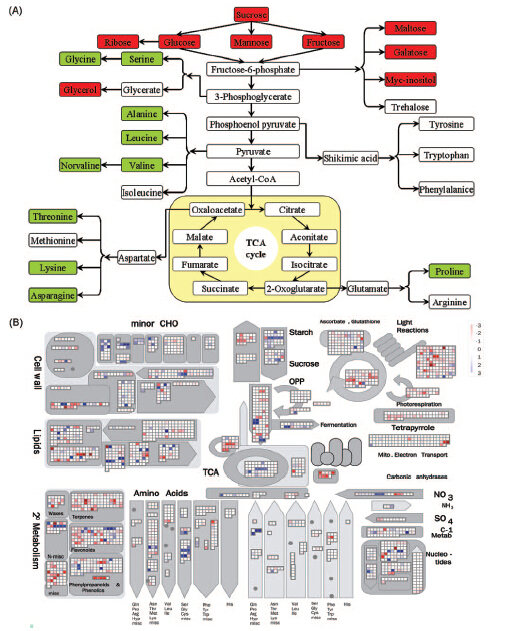
Melatonin (N-acetyl-5-methoxytryptamine) is a well-known animal hormone that is involved in many biological processes including sleep, circadian rhythms, antioxidative activity, and immunological enhancement. It is not only found in animals, but is identified in plants. The well-known beneficial effects of melatonin on human health and the abundance of melatonin in popular beverages and crops may encourage the daily consumption of products rich in melatonin.
Bermudagrass [Cynodon dactylon (L). Pers.] is a warm-season turfgrass cultivated worldwide. The improvement of its abiotic stress resistance is very important for grass engineering. Previous study has showed melatonin’s benificial role in some plant's development and stress responses. However, the endogenous melatonin concentration and the possible role of melatonin in response to abiotic stress in bermudagrass are largely unknown.
Prof. CHAN Zhulong and Dr. SHI Haitao from Wuhan Botanical Garden of Chinese Academy of Sciences made comparative physiological, metabolomic, and transcriptomic analyses to reveal mechanisms of improved abiotic stress resistance in bermudagrass by exogenous melatonin.
In this study, the researchers found that exogenous melatonin application improved salt, drought, and freezing stress resistance in bermudagrass. Exogenous melatonin treatment revealed that exogenous application of melatonin modulated abiotic stress-triggered reactive oxygen species accumulation and related oxidative damage in bermudagrass. Metabolic and transcriptomic analyses indicated that melatonin affected the express of many genes involved in plant defense and these changes might contribute to the enrichment of stress-related gene ontology term. Exogenous melatonin treatment had significant effects on various signalling pathways, as well as the concentrations of 54 metabolites including amino acids, organic acids, sugars and sugar alcohols.
This study provides evidence of the exogenous melatonin’s protective role in response to abiotic stresses in the bermudagrass, which involves the activation of antioxidants, modulation of metabolic homeostasis, and extensive transcriptional reprogramming.
This research entitled “Comparative physiological, metabolomic, and transcriptomic analyses reveal mechanisms of improved abiotic stress resistance in bermudagrass [Cynodon dactylon(L). Pers.] by exogenous melatonin” was published in Journal of Experimental Botany.
The research was supported by the Knowledge Innovative Key Program, Youth Innovation Promotion Association, the Chinese Academy of Sciences, and the Hundred Talents Program.

The effects of melatonin on the metabolites that were involved in the carbon metabolic pathway. (Image by Dr. SHI Haitao)

86-10-68597521 (day)
86-10-68597289 (night)

52 Sanlihe Rd., Xicheng District,
Beijing, China (100864)

